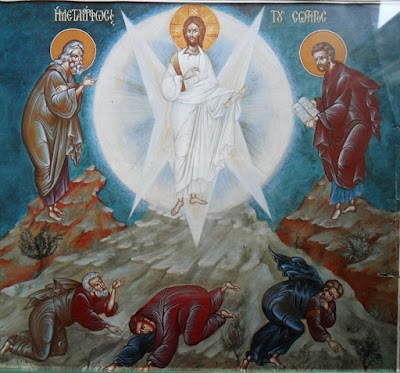
“Come to me,” because I have come near to you, yes, even so far that I made myself a sharer in your nature by taking on flesh. At least do not flee a partaker of your fellowship, if you do not know the Author of your salvation. “And they came to him and he said, ‘I am Joseph your brother whom you sold into Egypt. Now therefore be not grieved, and let it not seem to you a hard case, that you sold me here; for God sent me before you for life.’” What fraternal devotion! What a good brotherly relation! He would even excuse His brothers’ crime and say that it was God’s providence and not man’s unholiness, since He was not offered up to death by men but was sent by the Lord to life. What else is the meaning of that intervention made by our Lord Jesus Christ, who excelled all His brothers in holiness? When He was on the cross, He said in behalf of the people, “Father, forgive them; for they do not know what they are doing.” What other meaning is there either in that holy appeal made in the midst of the disciples? For He said, “Peace to you! It is I, do not be afraid.” And when they were startled and panic-stricken and thought they saw a spirit, again He said to them, “Why are you disturbed and why do doubts arise in your hearts? See my hands and feet, that it is I myself. Feel and see, for a spirit does not have flesh and bones, as you see I have.” And so, even then these future mysteries were revealed to later times.
Indeed they are expressed in the same words, so that we may know that He is the same who spoke before in Joseph and afterward in His own body, seeing that He did not change even the words. For at that time He said, “Be not grieved,” and later, “Go up to my father and say to him, ‘Thus says your son Joseph: God has made me master of the whole land of Egypt.’” And in the Gospel Christ says, “Do not be afraid. Go, tell my brothers to go into Galilee, and there they shall see me.” And later He says, “All power in heaven and on earth has been given to me,” which is to say, “This was the doing of God’s design in order that I might receive power, and not the work of human cruelty.” He who is counting out the reward does not reproach the crime. Now as to what appears in Genesis, “for God sent me before you to life,” Christ repeats this in the Gospel when He says, “Teach all nations, baptizing them in the name of the Father, and of the Son, and of the Holy Spirit.” For this is the recompense and the life of the saints, that they have also brought about the redemption of others. And notice that the following, too, was not written without purpose in Genesis, “And you will be near me, you and your sons and your sons’ sons.” For this is what Christ said in the Gospel, “Behold, I am with you all days, even unto the consummation of the world.” How clear also is that mystery! For when every commandment had been fulfilled, so to speak, Joseph embraced his brother Benjamin and fell upon his neck. Likewise, when the Gospel is brought to completion, Christ embraces Paul in the arms of His mercy, as it were, so as to lift him up into heaven once the latter has shown submission by inner belief as if by bending his neck.
Ambrose of Milan, On Joseph 12.68–73




